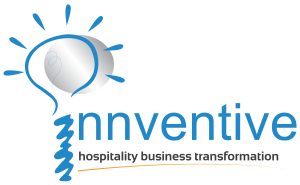9 Ways To Fall In Love With Your Hospitality Business Again Part 3: 7-9, Working Smarter, Not Harder

9 WAYS TO FALL IN LOVE WITH YOUR HOSPITALITY BUSINESS AGAIN
Part 3
7-9, WORKING SMARTER, NOT HARDER
In Part 1 and Part 2, we looked at great ways to step back from your business and surround yourself with all the right people – that’s not just staff, but customers and suppliers, too. Just after Valentine’s Day and in the depths of winter, most owners of restaurants, pubs, hotels and bars, fall out of love with their businesses, as it’s usually one of the quietest times for trade and most popular for reflection.
So, how can you alter the way you work and make sure that you re-create a business that you can fall in love with again?
I’ve found in my hospitality businesses that working harder wins no medals, very little respect from the staff team and very few friends as customers. Just working longer hours, thinking that it saved the wage bill or that only I could get the important tasks done, just made me useless as a business leader and put me in hospital TWICE. So I know what it’s like! However, I was lucky to be shown a better way, one which brought about huge dividends immediately and gave me the knowhow and experience to pass on to others.
Here’s my third 3 (of 9) ways to fall in love with your hospitality business again, a short overview of how to work smarter, not harder. I know it sounds clichéd, but in hospitality it’s even more important to get this aspect of your business right and to control your business before it controls you:
7: Behave like an entrepreneur, not a technician
Michael Gerber, the renowned American author of ‘The E-Myth’, has inspired me and thousands of successful entrepreneurs worldwide, telling us what most of us already knew… that we’re more often than not slaves to our own businesses, poorly paid stressed out managers who just keep on ending up at the ‘coal face’ and can’t step back and lead. Go to Amazon now and buy the book. Here’s a pic of me (on the left!) and Michael in November last year:
The classic example of the hospitality ‘technician’ business owner is the chef/proprietor who keeps himself to the kitchen during both preparation and service hours and hardly sees his family of friends because the busier he gets, the harder he has to work. He may well have had dreams at one time or other of branching out, expanding and building a business empire, but before too long he makes himself indispensable by doing all the technical jobs which he knows best and thinks only he can do best. He remains in the kitchen, ignoring all the other tasks and roles that the entrepreneurial business owner has to do. Inevitably, the chef/proprietor limits himself to a small and stressful single site business and never reaches any level of true entrepreneurism.
On the other hand, the real hospitality entrepreneur is a master at stepping back and looking at the bigger picture, identifying new opportunities, assigning tasks and responsibilities, nurturing, motivating and, perhaps most important of all, finding and keeping customers. The real entrepreneur surrounds himself with people who are all better than him at the technical side of the business. But he’s a leader, inspiring people, not just expertly managing things.
8 . Know your numbers and enjoy beating targets
 Every good machine needs a dashboard or instrument panel. Treat your business like an aeroplane, or if you prefer, a Formula 1 car. Both are incredible inventions but they’re useless without clear statistics, data and measurements of altitude, speed and fuel levels for their pilots and drivers. Without data, aeroplanes and cars crash and so will your hospitality business.
Every good machine needs a dashboard or instrument panel. Treat your business like an aeroplane, or if you prefer, a Formula 1 car. Both are incredible inventions but they’re useless without clear statistics, data and measurements of altitude, speed and fuel levels for their pilots and drivers. Without data, aeroplanes and cars crash and so will your hospitality business.
Whether you own a restaurant, pub, hotel or bar, you’ll have a business that is made up of hundreds of essential and interconnected parts and people. You need to know if your parts and people are working as they should be and the best way to test that is through factual information. There’s no room for hunches or guesswork.
Most multiple operators and managed chains have systems in place that enable them to view data on a daily and weekly basis. They look at their figures at least once a week. The figures they look at are essential statistics and revenue such as sales compared to projections, numbers of customers, average spends, gross margins across all income streams, wages and salaries, fixed and variable overheads, bankings, the balance sheet and, most importantly, the BOTTOM LINE. They know every week what they have to do to break even and they know how serious it is if they are going in the wrong direction. To come back to our analogy, they know if they’re going to run out of fuel and they know how to avoid a crash.
Believe it or not, especially with contemporary technology, it’s never been easier to get a grip of your numbers and a handle on your business. Just take some advice on which of the key numbers to record, calculate and monitor on a weekly, monthly, quarterly and annual basis.
You’ll be surprised, those numbers will get better over time, you’ll love beating targets and celebrating successes – just so long as you keep focussed on the right things…
- Focus on just ONE Income Producing Activity (IPA) at a time
Contrary to popular belief, multi-tasking is over-rated as an entrepreneurial skill and a self-proclaimed multi-tasker is likely to try lots of tasks and succeed at doing very few, if any, well. It’s easy to try to be a multi-tasker and it’s a definite way to fall out of love with your business very quickly. Multi-taskers are busy fools.
Every single day in this business, your own need to do other, less important, things instead of the item on your ‘To Do’ list that you’ve prioritised is going to be the biggest challenge that you’ll have to overcome. If you want to keep moving forward and get out of the ‘thick of little things’, then deciding to focus on one key Income Producing Activity (IPA) at a time is essential.
The ability to focus and say NO to the million and one other things that need to be done is a key skill of successful hospitality entrepreneurs. I know that this business is like no other, but if you allow yourself to be diverted personally into helping out every member of staff with all their requests for help, speak to every single customer who has a question or every supplier who wants to make an appointment, you’ll end up with a rubbish business.
“Get off the floor and close the door” is a phrase I use constantly with restaurant owners I meet who complain that there’s just not enough time in the day to get their vital tasks done. Get a ‘Do Not Disturb’ sign, switch off your phone, disconnect your internet browser and emails, go elsewhere to get vital IPAs finished. These are vital ways of focussing 100% on the most important task of the day.
Gary Weller in his brilliant New York Times and Wall Street Journal bestselling book, ‘The One Thing’, appreciates that habits are hard to break. However, in order to form habits that get us what we want from life, he advocates a daily ritual of asking what he calls the Focussing Question, ‘What’s the ONE Thing I can do such that by doing it everything else will be easier or unnecessary?’ He then goes on to apply this question to different areas of his life.
Applying this Focussing Question method to your restaurant, pub, bar or hotel is probably easier than you think. For instance, for your own business, ask the following:
- What is the ONE thing we can do <Today/This week/This month> to make us more competitive…
- What is the ONE thing we can do <Today/This week/This month> to make our menu the best…
- What is the ONE thing we can do <Today/This week/This month> to increase our gross margin on <food/beer/wine/coffee/bedrooms>
- What is the ONE thing we can do <Today/This week/This month> to increase our customer/guest experience?
These are real IPAs. These are the sort of questions and sort of essential activities that you, as the business owner and entrepreneur, need to be absolutely 100% focussed on, ONE at a time, every day. Work on these, identify the objective, delegate tasks and responsibilities to your team and GET THEM FINISHED. Just do this for 30 days and focussing on just one Income Producing Activity (IPA) at a time will become a habit.
Your business will be more efficient, more popular, more profitable and a lot easier to fall back in love with.
So, those were my 9 ways to fall in love with your hospitality business again. Just to recap:
- Take a rest, NOW!
- Look at your plan
- Look at the positives
- Find the best staff and KEEP them
- Attract and keep on attracting the best customers – the ‘3 Ms’
- Find the right suppliers – who’s looking after you?
- Behave like an entrepreneur, not a technician
- Know your numbers and enjoy beating targets
- Focus on just ONE Income Producing Activity (IPA) at a time
Finding your own new, smarter, ways to run your restaurant, pub, bar or hotel business can be horribly difficult but essential for long term success. We give the necessary tools and guidance to both budding and already successful entrepreneurs in www.hospitalityentrepreneur.com and we welcome your experiences and insights as part of our growing members’ community.
By Peter Austen, Business Planning and Operational Coach (www.innventive.co.uk) and Founder of Hospitality Entrepreneur (www.hospitalityentrepreneur.com)
© 2016 All rights reserved www.hospitalityentrepreneur.com




